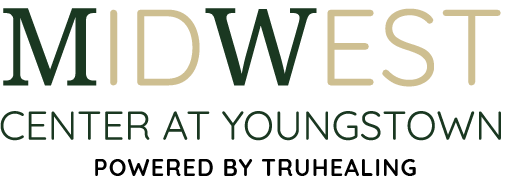Cognitive-behavioral therapy is quickly becoming one of the most commonly practiced mental health interventions, and with good reason. Due to its practical, solution-oriented nature where clients take an active role in establishing their own goals, many consider it helpful for individuals seeking a better life, whether or not they struggle with substance use.
When seeking a recovery program offering cognitive behavioral therapy in Ohio, consider looking to our team of specialists at Midwest Center at Youngstown. We offer cognitive behavioral therapy as one of many evidence-based supports, empowering clients with the freedom to create a happier, healthier existence. Call us today at 844.544.0502 to learn more about the next steps in acquiring the help you need to reclaim your life.
What Is Cognitive Behavioral Therapy (CBT?)
Cognitive-behavioral therapy, or CBT, is most typically used during individual counseling sessions. According to this method, feelings, emotions, and resultant behaviors are shaped by internal thoughts rather than outside stimuli, meaning that despite external circumstances, any individual can improve their mental health from within with the right training.
CBT differs from traditional therapy in that it is an active intervention, where the therapist and client work cooperatively to unearth patterns in the client’s thought process. In a CBT session, a licensed therapist will use a combination of the following methods:
- Guide the client through a variety of written and oral exercises, illustrating their unique thought processes
- Identify problematic or erroneous thoughts patterns and how they may result in specific self-destructive behaviors (such as “all or nothing” and “filtered” thinking, or a tendency to jump to conclusions when given insufficient information)
- Teach metacognitive strategies where the client may monitor their own thoughts and feelings and how to vet reflexive responses for accuracy
- Coach clients in the appropriate use of these strategies
- Help clients learn appropriate tools for accessing help when it is required
CBT sessions also stress a technique known as habituation, a type of immersion therapy where the client learns to examine triggers and their emotional responses separately. This can be very helpful in treating trauma, phobias, anxiety disorders, or any other learned condition where the client has learned to fear their own reactions to specific triggers.
How Can CBT Aid in Addiction Treatment?
CBT is one of the most widely-used approaches to substance use treatment today. It allows the client to be empowered by therapy and reinforces their ability to alter their personal narrative through proactive choices, which actively prepares them to succeed in life beyond the short-term duration of their treatment program. For example, it can help clients identify situations in which they are more likely to drink or take drugs or when it is imperative to call their counselor or sponsor.
CBT is equally helpful in the treatment of many of the co-occurring disorders experienced by individuals in recovery, including:
- Attention-deficit/hyperactivity disorder (AD/HD)
- Bipolar disorder
- Chronic anxiety or depression
- Eating disorders such as anorexia nervosa and bulimia
- Obsessive-compulsive disorder (OCD)
- Post-traumatic stress disorder (PTSD)
In addition, CBT’s highly constructive and goal-oriented nature allows significant gains to be made in relatively little time, so it is very compatible with 30-, 60-, or 90-day intensive healing protocols. It also works as a helpful complement to other therapeutic approaches and teaches individuals in recovery how to assess their progress as a whole.
Learn More About Cognitive Behavioral Therapy at Midwest Center at Youngstown
It may be difficult to imagine now, but it is possible to leave a treatment program a stronger, more determined individual in all areas of your life. You may even find that your general health and happiness to be the principal tool in your arsenal to avoid future relapse. At Midwest Center at Youngstown, CBT is one of the many evidence-based strategies we employ to offer our clients the best chance for lasting sobriety. Call our team today at 844.544.0502 to resume ultimate control over your destiny.

